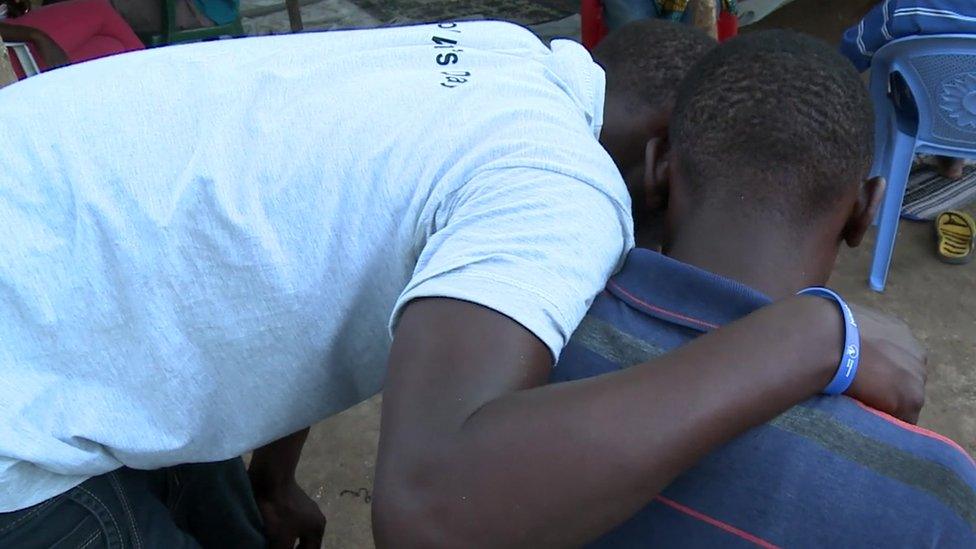Gay refugees sent back to 'homophobic Kenya camp'
- Published
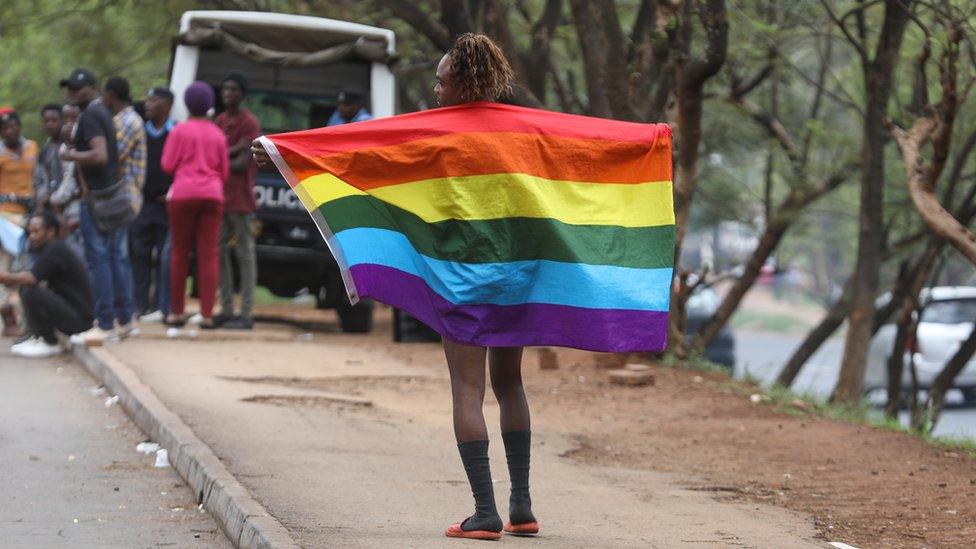
Protests have been held in Kenya's capital to show support for the LGBT refugees
Kenya's government has ordered a group of 76 refugees to return to a camp they had fled after some of them faced homophobic attacks, a UN agency says.
Police with guns escorted the group on to buses on Wednesday night, photos sent to the BBC by the refugees show.
The group had been living in temporary accommodation in the capital, Nairobi, after fleeing the refugee camp.
Gay sex is illegal in Kenya and the countries where the refugees come from, including Burundi and Uganda.
Last month Kenya's High Court upheld a law criminalising gay sex.
In a statement, the UN refugee agency said the Kenyan government had decided to send the group, which includes LGBT people and children, to the Kakuma camp in north-western Kenya.
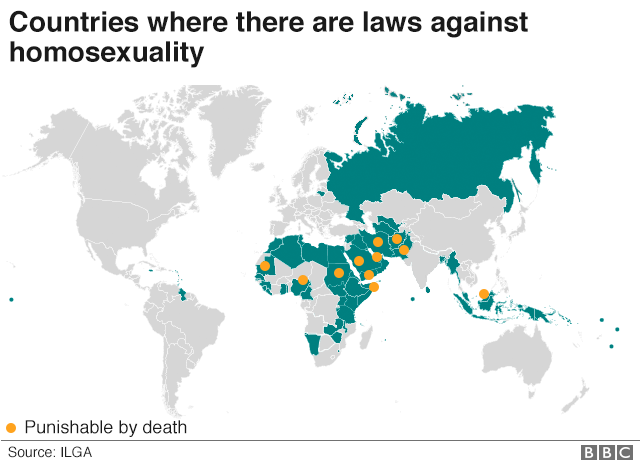
The government is quoted by the UN as saying that refugees "should be living in camps and, if they reside outside of camps, it should be with appropriate documentation".
The UN said it would protect the group in the camp.
Tens of thousands of people live in the camp. Most of them fled conflict and drought in countries such as South Sudan and Somalia.

'We don't know where to flee'
By Cyuzuzo Samba, BBC Great Lakes, Nairobi
When Frank's (not his real name) family in Burundi found out he was gay they paid criminals to kill him. They tied him up and dumped him in a river. But he was rescued by shepherds and fled the country.
He travelled through Rwanda and Uganda and eventually ended up in the Kakuma refugee camp, where, he says, he faced regular violent attacks for being gay and now has a huge scar on his face.
Frank says at the end of 2018 a group of LGBT people were told by the administration of Kakuma camp that they were no longer able to protect refugees against homophobic attacks. Some people then started leaving the camp. He fled in April, and joined a bigger group of LGBT people in the capital, Nairobi.
But, Frank says, some of them were attacked by neighbours and last week the landlord threatened to evict them. They moved to another suburb of Nairobi but on Wednesday night two buses turned up, with no warning to take the group on the 14-hour journey through the night to the camp where he had fled attacks, he says.
"Wherever we have lived we face homophobia because of our orientation, we don't know where to flee to."

- Published25 May 2019
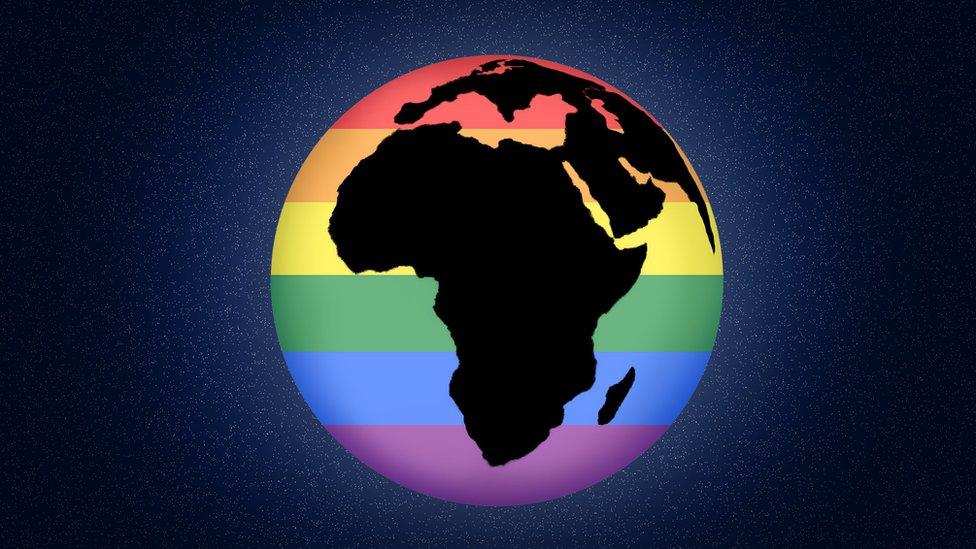
- Published29 May 2019
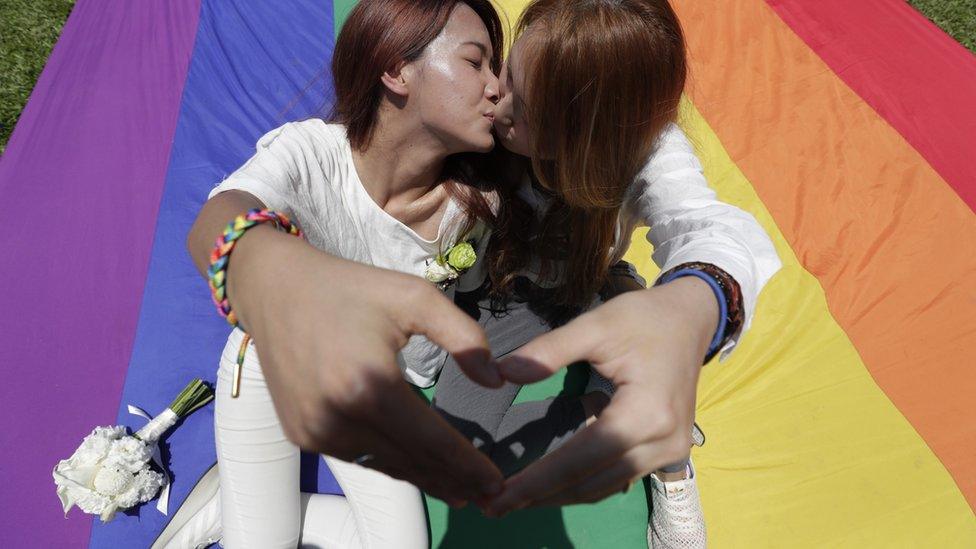
- Published10 November 2015
